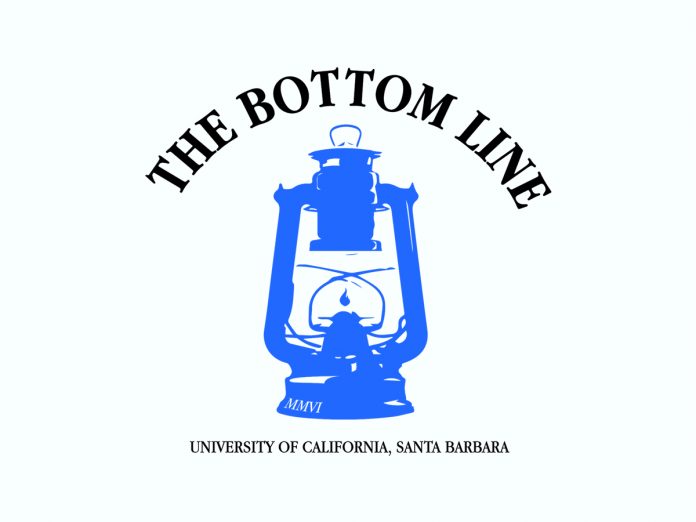Minh Hua
Campus Beat Reporter
On Wednesday, Jan. 30, the UCSB Office of the Vice Chancellor of Student Affairs organized a town hall on the “Task Force on Universitywide Policing” that UC President Janet Napolitano convened last spring.
Alex Bustamante, the chair of the task force, was at the town hall presenting on the task force’s recommendations and asking for feedback from students, administration, and law enforcement officials from the community.
During the town hall, there was much discussion surrounding increasing interpersonal relations between law enforcement and students, as well as a call for students and members of the community to engage with their law enforcement officials.
Bustamante explained that the task force drafted four key points of improvement, which includes an examination of police training in regards to use of force, the complaints process, post-incident review for significant events, and community outreach.
“In the early parts of last year, the president wanted to improve aspects of the police department and to see if we were actually tracking practices,” said Bustamante.
The task force started their work by learning policies, procedures, and best practices regarding policing that were already present in the greater national dialogue. Bustamante reported that the task force examined the principles adopted by the Obama 21st-century task force, as well as reviewed literature on topics such as policing and cultural sensitivity.
Bustamante states that there have always been a lot of biases towards the police department, and that the task force wanted to demystify and clarify what people think police officers can and can’t do and how law enforcement officials are actually trained.
Bustamante cited the court case Graham v. Connor, where the Court ruled that “all claims that law enforcement officials have used excessive force — deadly or not — in the course of an arrest … are properly analyzed under the Fourth Amendment’s “objective reasonableness” standard, rather than under a substantive due process standard.”
Noah Kastenbaum, a third-year communication major at the town hall, said “I have seen an officer just grab a soda can from a student to check if it is alcohol. It seems to be excessive.”
In response, UC Police Department (UCPD) Officer Ariel Bournes stated that officers in his department get hour-long briefings in regards to communicating the motivation and reasoning behind the arrest.
“It’s different to be on the outside looking in to the situation,” said Ariel, “it’s an issue of perception.”
Bustamante also added that there is a difference between UCPD and the local authorities, where the latter isn’t as sensitive to university culture. However, Bustamante emphasized that students who feel they are disrespected by law enforcement officials should always engage in the complaint filing process.
”If this is happening again and again, you need to engage in any way that is appropriate to you. You need to step forward,” said Bustamante.
The exchange between a police officer and a student highlighted the town hall’s general theme of bridging the gap of communication between the often unfriendly relationship between students and law enforcement officials. Bustamante said that the force’s goal was to let “everyone to have a healthy dialogue.”
In regards to outreach, the task force went to student organization to solicit input and disseminate policies to student organization leaders as well as faculty and academics.
The task force looked at the recommendations from those inputs and reviewed what they missed in their analysis, making sure that they included in the final report the voices of everybody.
During the town hall, an audience member asked Bustamante about how the task force is addressing the status of undocumented and international students in America.
In response, Bustamante stated that the task force did not directly address those issues, but they did extensively review policies on diversity.
“[We looked at] how do we make sure that the police department and administration see from the vantage points of those groups. One of our recommendations is implicit bias training,” said Bustamante.
“I was tasked with meeting campus entities that handle the undocumented students community and [was able to] see from student’s perspective how they feel about things. It was interesting to pass the information along [about] what we need to do,” said Lt. David Millard of UCPD.
Additionally, UCPD Chief of Police Dustin Olson addressed the department’s diversity in hiring, stating that “there’s still work to do, but we are more diverse than we have been in the past. In regards to gender we are 30 percent female, which is double the national average.”
The town hall also discussed the task force’s role in addressing the larger issues in the national scope.
Educational Opportunity Program (EOP) Director Aaron Jones asked “What are we doing to address the root causes? I know it’s not as easy, but how are we getting to the underpinnings of what’s actually happening? This task force has opportunity to talk about things like racism, privilege, and hypermasculinity.”
In response, Bustamante offered “In the report we reference the greater national dialogue. However, sometimes it is easy to get lost in the national dialogue and forget about the issues you are trying to solve. If we are looking to improve things here, not just in the short term, it doesn’t mean ignore the larger tapestry of america, but to make meaningful changes you have to look at what’s here.”
Throughout the meeting, Bustamante applauded UCSB’s law enforcement for being “progressive” in their initiatives to foster better policing relations, referencing their officers’ usage of body cameras and their community events such as the Citizen’s Academy.
The task force will present on the report to two more UC schools before submitting it to the UC Office of the President (UCOP). UC President Janet Napolitano will have the final say on what matters are addressed.
“We ended up with a set of recommendations that tried to be measured in what is put forward but is meaningful in the same time. Not just a good sound bite but something we can implement,” said Bustamante.











